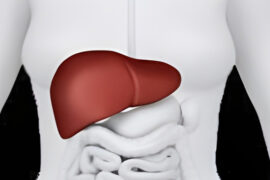The research conducted by the Murdoch Children’s Research Institute (MCRI) suggests that having a food allergy in early childhood may be associated with a four-fold increased risk of developing asthma and reduced lung function when the child starts school.
The study is the first of its kind to explore the relationship between food allergies in infancy and lung function in later childhood. While food allergy is often considered an indicator of developing asthma, the connection between infant food allergy phenotypes and lung function and asthma in childhood is not entirely clear.
Lead author of the study, MCRI Associate Professor Rachel Peters, highlights the concern over this link, as reduced lung growth in childhood can lead to respiratory and heart conditions in adulthood. Therefore, she emphasizes the importance of monitoring the lung development of children with food allergies and recommends that children under care for food allergies should be monitored by a dietitian to ensure healthy growth.
The research was based on the HealthNuts cohort study in Melbourne, involving 5276 one-year-olds who were tested for common food allergens. The study found that babies with a food allergy were almost four times more likely to develop asthma at the age of six compared to those without a food allergy. Even if the food allergy is resolved by age six, it was associated with “lung function deficits” and asthma.
The authors of the study suggest that healthcare providers and parents should be aware of any asthma symptoms in children with food allergies, as poorly controlled asthma was identified as a risk factor for severe food-induced allergic reactions and anaphylaxis.
It is noted that sometimes parents may not be aware of the link between food allergy and asthma, and they may only focus on managing the food allergy itself. The researchers hope that their findings will raise awareness among families and clinicians about the potential connection between food allergies and asthma.
The study concludes that further follow-up studies on interventions to prevent food allergies could provide an opportunity to explore whether preventing these allergies would improve respiratory health in children. Overall, this research underscores the importance of monitoring and managing food allergies in early childhood to potentially reduce the risk of asthma and respiratory issues in later years.
Disclaimer:
The information contained in this article is for educational and informational purposes only and is not intended as a health advice. We would ask you to consult a qualified professional or medical expert to gain additional knowledge before you choose to consume any product or perform any exercise.







